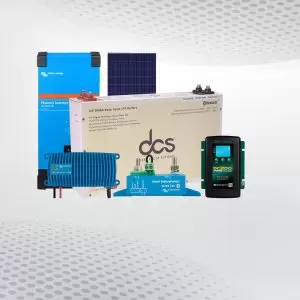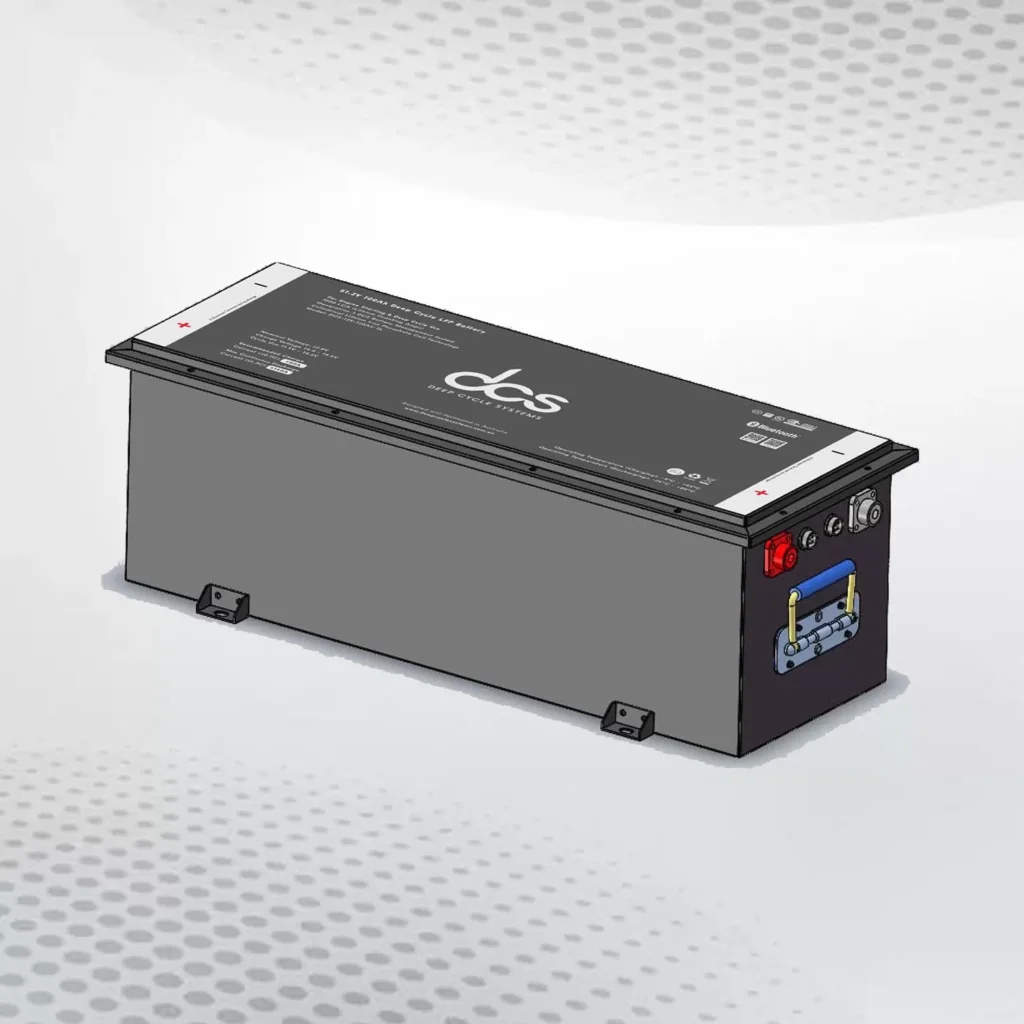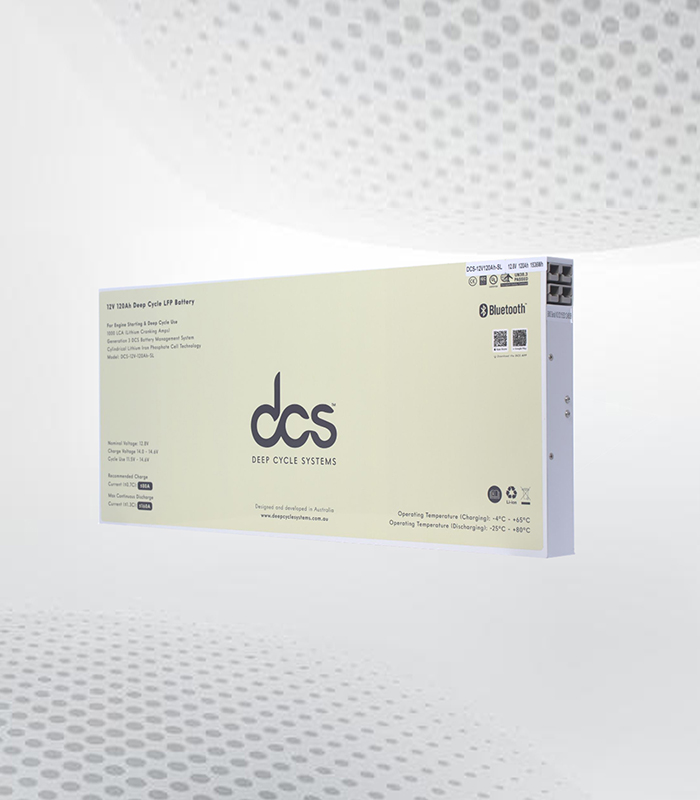When it comes to embarking on an adventure in your recreational vehicle (RV), having a reliable power source is essential. The modern traveler demands efficiency, longevity, and dependability, which is why the lithium RV battery has become a game-changer in the world of camping. These high-performance batteries are lightweight, long-lasting, and designed to meet all your camping needs, ensuring you never run out of power while exploring the great outdoors.
The Benefits of Lithium RV Batteries over Traditional Batteries
Lithium RV batteries offer numerous advantages over traditional lead-acid batteries. Their significantly lighter weight helps reduce the overall load of your RV, enhancing fuel efficiency. With a much longer lifespan, lithium batteries can last up to ten times longer, providing excellent long-term value. They charge faster, allowing you to get back on the road quicker, operate more efficiently, and deliver consistent power output. Moreover, they require less maintenance, freeing up your time for more enjoyable activities.
Additionally, lithium batteries can handle more charge cycles, meaning they can be discharged and recharged many more times than lead-acid batteries without significant degradation. This makes them particularly suitable for modern RVs, where multiple devices and appliances are in use.
Their resilience to temperature extremes also ensures reliable performance in various weather conditions. Finally, built-in battery management systems (BMS) in lithium batteries enhance safety, preventing issues such as overheating and overcharging.
Understanding the Technology behind Lithium Marine Battery
Lithium marine batteries leverage advanced technology to deliver superior performance and efficiency to RV users. Unlike traditional lead-acid batteries, lithium batteries use lithium iron phosphate (LiFePO4) as their cathode material, which offers greater thermal and chemical stability. This results in safer and more efficient energy storage.
One of the core components of a lithium battery is its battery management system (BMS). The BMS monitors and manages the battery’s charge and discharge cycles, ensuring optimal performance and extending the battery’s lifespan. It prevents issues such as overcharging, overheating, and deep discharges, which can degrade battery health.
Lithium marine batteries also feature higher energy density, meaning they can store more energy in a smaller and lighter package. This makes them particularly advantageous for RV use, where space and weight are critical considerations. The fast charging capability of lithium batteries is another technological advancement that benefits RV users, allowing for quicker turnaround times when recharging on the go.
The internal structure of a lithium marine battery comprises multiple cells connected in series and parallel configurations to achieve the desired voltage and capacity. These cells are designed to balance each other during charge and discharge cycles, maintaining consistent performance across the battery pack.
In essence, the Technology behind lithium marine batteries combines advanced materials, sophisticated management systems, and superior energy density to provide reliable and efficient power for all your camping adventures.
How to Choose the Right Lithium RV Battery for Your Needs
Selecting the right lithium RV battery involves considering several key factors. Begin by determining your power requirements, which depend on the appliances and devices in your RV. Look at the battery’s capacity, usually measured in amp-hours (Ah), to ensure it aligns with your energy needs. It’s also crucial to consider the battery’s size and weight to confirm it fits comfortably within your RV’s battery compartment.
Features like built-in battery management systems (BMS) are important for enhanced safety and longevity. Additionally, ensure the battery is compatible with your RV’s existing charging system to guarantee seamless integration. Remember, a battery that meets your specific needs will contribute significantly to your overall camping experience.
Maintaining Your Lithium RV Battery for Optimal Performance
Maintaining your lithium RV battery ensures it remains in peak condition. Regularly monitor the state of the charge and recharge it before it drops below 20% to prevent deep discharges. Clean the battery terminals periodically to avoid corrosion, which can impede performance. When not in use, store the battery in a cool, dry place to preserve its longevity. Regular inspections for signs of damage or swelling are crucial. Follow the manufacturer’s maintenance guidelines meticulously to keep the battery functioning optimally.
Additionally, ensure the battery’s built-in battery management system is functioning correctly, as it plays a vital role in monitoring and maintaining battery health. Use a proper charging system that is compatible with lithium batteries to avoid overcharging or damaging the cells. Avoid exposing the battery to extreme temperatures, as this can affect its efficiency and lifespan. By taking these steps, you can maximize the performance and durability of your lithium RV battery.
Installation Tips for Your New Lithium Ion Marine Batteries
Installing lithium ion marine batteries in your motorhome requires careful attention to ensure optimal performance and safety. Start by disconnecting any existing batteries and turning off all power sources to prevent accidents. Make sure you review the manufacturer’s installation manual thoroughly, as different batteries may have specific requirements.
Position the new lithium-ion marine battery in a well-ventilated area to mitigate the risk of overheating. Use high-quality, appropriate wiring and connectors capable of handling the battery’s power output safely. Secure the battery firmly in its compartment to prevent it from moving during travel, which could cause damage or disconnections.
Verify that the battery’s polarity matches your motorhome’s wiring system to avoid short circuits. Proper grounding is essential; ensure all connections are tight and free from corrosion. If your motorhome setup includes multiple batteries, make sure they are wired correctly in parallel or series as per your energy needs.
Before powering up:
- Double-check all connections and the battery’s stability within its compartment.
- Use a multimeter to confirm the correct voltage and ensure everything is functioning as expected.
- After installation, monitor the battery during initial use to catch any potential issues early.
For those who need more confidence in their technical skills, consulting a professional installer is advisable to ensure everything is done correctly. This can help prevent potential mishaps and guarantee the safety and efficiency of your new lithium-ion marine battery setup.
Real-Life Experiences from RV Enthusiasts
Many RV enthusiasts who have upgraded to lithium RV batteries share positive experiences, highlighting the practical benefits and improvements in their travels. Users often note the significant increase in battery life, enabling them to enjoy extended trips without worrying about power shortages. The ability to power multiple devices and appliances simultaneously has been particularly beneficial, allowing for a more comfortable and convenient camping experience.
The lightweight design of lithium RV batteries has also been a game-changer for many travelers. By reducing the overall weight of their vehicles, users report improved fuel efficiency and easier handling, which is especially important for long journeys. Additionally, the reduced maintenance requirements are frequently mentioned as a major advantage, freeing up time and energy for more enjoyable activities rather than routine battery upkeep.
Many users appreciate the resilience of lithium RV batteries to temperature extremes, noting that they perform reliably in various weather conditions. This reliability has provided peace of mind, knowing that their power source is dependable regardless of the environment.
Overall, many RV enthusiasts have described the switch to lithium RV batteries as a transformative upgrade. The combination of extended battery life, lightweight design, and reduced maintenance has enhanced their camping adventures, making them more enjoyable and less stressful. The real-life experiences of these users reflect the practical advantages and improvements that lithium RV batteries bring to modern camping.
Cost Analysis: Is Lithium Ion Deep Cycle Battery Worth the Investment?
Investing in lithium ion deep cycle battery may initially seem costly, but a detailed cost analysis reveals the long-term financial benefits they offer. The upfront expense is offset by its extended lifespan, often lasting up to ten times longer than traditional lead-acid batteries. This longevity means fewer replacements over the years, translating to significant savings.
Additionally, lithium batteries are more efficient in their energy use, which can reduce the need for frequent recharges. Faster charging times also mean less energy consumption and lower electricity costs. Their lightweight nature contributes to improved fuel efficiency, offering further economic advantages for RV users who travel frequently.
Maintenance costs are another crucial factor. Lithium batteries require far less upkeep than their lead-acid counterparts, eliminating expenses related to water topping and corrosion cleaning. These batteries also come with built-in battery management systems that protect against common issues like overheating and overcharging, further reducing potential repair costs.
When evaluating the total cost of ownership, including purchase price, operational efficiency, maintenance, and longevity, lithium ion deep cycle batteries often prove to be a more economical choice. Their ability to provide reliable power, coupled with the reduced need for replacements and maintenance, makes them a sound investment for those looking to enhance their RV experience while being mindful of long-term costs.
Environmental Impact of Lithium RV Batteries
Lithium RV batteries are more environmentally friendly than their lead-acid counterparts due to several key factors. Their higher energy efficiency means that less energy is wasted, contributing to a reduction in overall energy consumption. The extended lifespan of lithium batteries reduces the need for frequent replacements, thereby decreasing the environmental burden associated with manufacturing and disposal.
Furthermore, lithium batteries are recyclable, and advancements in recycling technology have made the process more efficient and less harmful to the environment. This recyclability mitigates the environmental impact of disposal. Additionally, lithium batteries do not contain hazardous materials like lead and sulphuric acid, which are found in traditional lead-acid batteries and can cause significant environmental harm if not disposed of properly.
By opting for lithium batteries, RV users are making a more sustainable choice, aligning their travel practices with ecological conservation efforts.
Conclusion
Lithium RV batteries bring numerous advantages to the modern camper. Their lightweight design significantly reduces the overall load of your vehicle, improving fuel efficiency and handling. The impressive lifespan of lithium batteries, often up to ten times longer than traditional lead-acid batteries, offers outstanding long-term value. With faster charging times and consistent power output, they allow for uninterrupted use of multiple devices and appliances, enhancing the overall camping experience.
The advanced Technology behind lithium batteries, including battery management systems, ensures optimal performance and safety. These systems prevent issues like overheating and overcharging, contributing to the battery’s reliability and durability. The resilience of lithium batteries to temperature extremes further guarantees dependable performance in various weather conditions, providing peace of mind during your travels.
FAQs
1. What is the lifespan of a lithium RV battery?
A well-maintained lithium RV battery can last up to ten years or more.
2. Are lithium RV batteries safe?
Yes, they feature built-in battery management systems (BMS) that safeguard against overheating, overcharging, and other potential hazards.
3. Can I replace my lead-acid battery with a lithium RV battery?
Absolutely, but you must ensure that your RV’s existing charging system is compatible with the new lithium battery, making any necessary adjustments.
4. How should I store my lithium RV battery when not in use?
Keep the battery in a cool, dry place and maintain it at around 50% charge to optimize its health and longevity.
5. Is the higher initial cost of lithium RV batteries justified?
The long-term benefits, including extended lifespan, higher efficiency, and reduced maintenance, typically outweigh the initial expense, offering significant savings over time.




